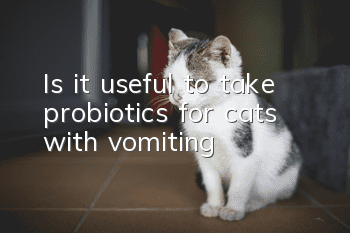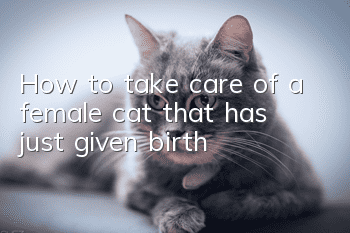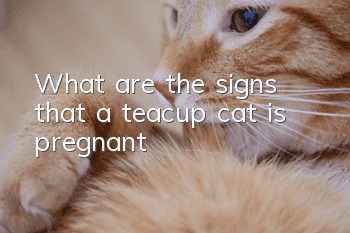Cats may get adolescent gingivitis after losing their teeth!

In fact, cats and dogs are similar to humans. They don’t have teeth when they are born, because they still need breast milk to feed them at first. If the mother cat is breastfeeding, so many cats and cats bring their teeth to suck, then why can’t they bear it? It is simply another difficulty after production.
Usually when kittens are 3-4 weeks old, their baby teeth will slowly begin to grow. After 7 weeks, the mother cat will slowly stop feeding the kittens due to the pain caused by the teeth. This is also the best feeding period. Let them learn to chew their food.
Kitten’s teeth are not big and slightly transparent in appearance
So, when do you start to replace your teeth?
When deciduous teeth are 3 to 6 months old, their roots begin to dissolve and shorten until they become inconspicuous stubble under the crown. So if you find that the kitten spits out white teeth (maybe even bloodshot) at this time, don’t be surprised. This is tooth replacement, and more than 20 teeth need to be replaced!
Moreover, the deciduous teeth at this time are relatively soft, so even if the cat accidentally eats them during the tooth replacement process, it is not a big problem, as the intestines and stomach can digest them.
In addition, during the teething period, you may also find that cats will have some abnormalities. This is because teething will irritate the gums, and cats will hope to relieve it through other behaviors.
· Beginning to grind teeth, especially shoes, furniture and some bedding will become their targets;
· Constant drooling. Due to the pressure of the permanent teeth, the roots of the deciduous teeth begin to dissolve;
· Frequently licking paws with mouth, or rubbing face against other things;
· When the pain is very strong, it will even refuse to eat;
Once you notice these signs, you can give your dog something soft to help him grind his teeth, or you can soften his food to make it easier to eat.
However, during the process of tooth replacement, we will encounter two situations that require us to be more vigilant. One is that the deciduous teeth have not fallen out, but have grown in. This will cause various oral problems. It is best to ask a doctor to remove the deciduous teeth; The other is adolescent gingivitis. Although the specific cause is not certain, some people have hypothesized that it may be a temporary decline in immunity during adolescence, accompanied by the stimulation of tooth replacement, resulting in infection.
What is adolescent gingivitis?
Adolescent gingivitis is very similar to gingivitis in adult cats, in that the gums become irritated, infected and inflamed. The difference is that adolescent gingivitis usually appears after kittens have lost their teeth. Especially breeds such as Maine Coon cats, Siamese cats, and Persian cats are very prone to appear. As mentioned earlier, adolescent gingivitis is caused by immunityIt is caused by a decline in immunity, so it requires long-term patient care before the immune system stabilizes. It is not a problem that can be solved by just anti-inflammatory drugs like gingivitis.
During the treatment period, follow the doctor's instructions to do some basic home care and anesthesia and teeth cleaning. The disease can be cured at about 1 year old. In more serious cases, it will be delayed to about 2 years old.
The highest incidence point of adolescent gingivitis is near the molars, which can be found around the age of 7-10 months. If left untreated for a long time, it can easily develop into periodontal disease or even stomatitis. In this case, the best solution is to remove the excess gums and clean your teeth at the same time to avoid redness, swelling and proliferation of gums and the breeding of plaque and calculus.
In subsequent treatment, interferon can be used to regulate immunity and try to minimize the stimulation of the gum tissue and immune system to prevent recurrence. What needs to be mentioned during this process is daily brushing. If the cat really doesn’t like it, in addition to teeth cleaning, you can also try pet mouthwash, chlorhexidine gel, lysozyme gel, etc.
- Which is better, a male cat or a female cat? Is it better, a male cat or a female cat?
- How to take care of a cat after giving birth?
- Common internal parasites in cats and their prevention and treatment methods, you must know about them as a cat owner
- Do Siamese cats have good personalities?
- Why do cats get angry?
- How to train Ragdoll cats well? Ragdoll cat training tips!
- What should I do if my cat’s paw pads are dry and rough?
- How to get rid of fleas on American Curl cats?
- Are you doing everything right to deal with common cat diseases?
- How to express anal glands in cats?



